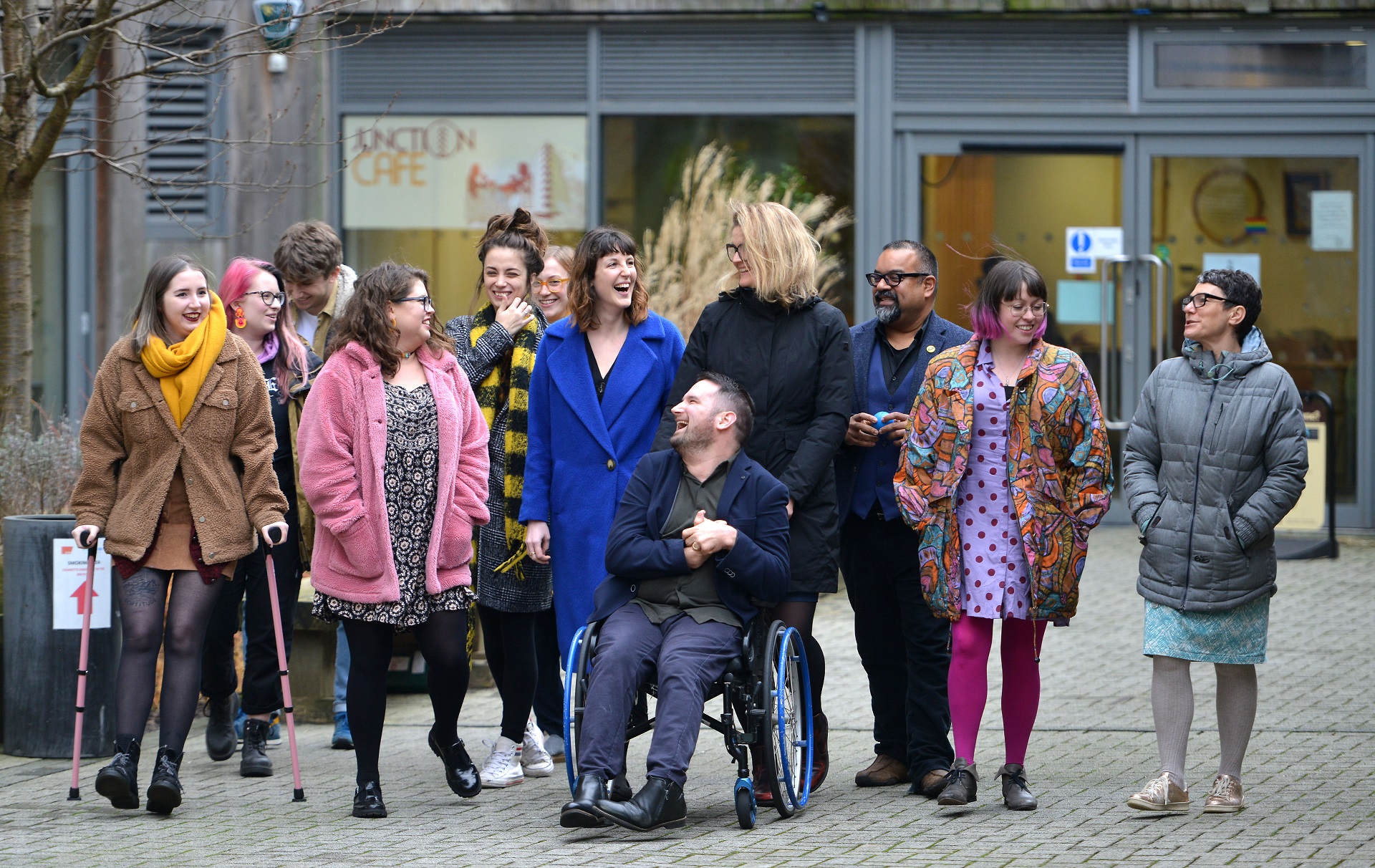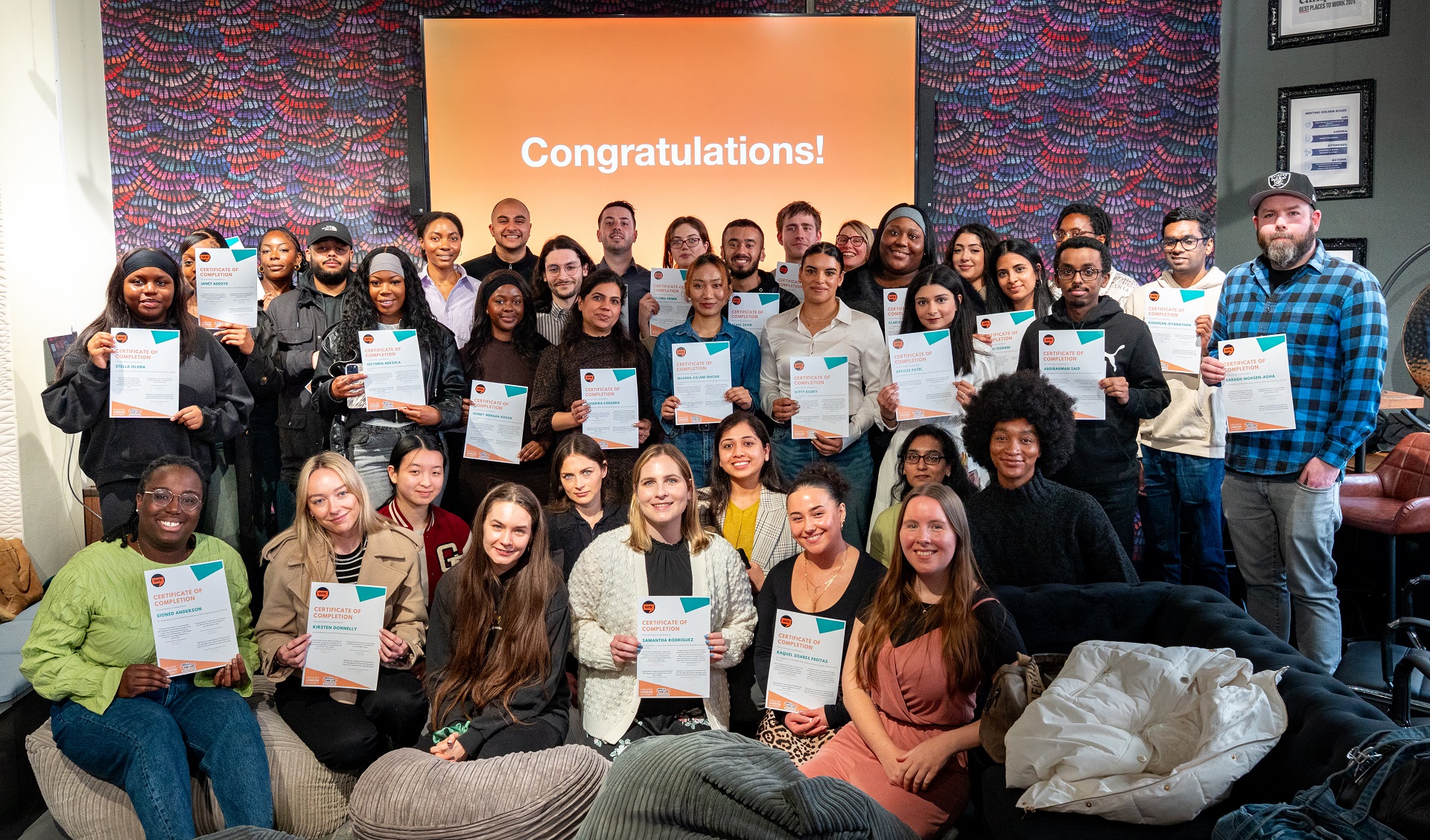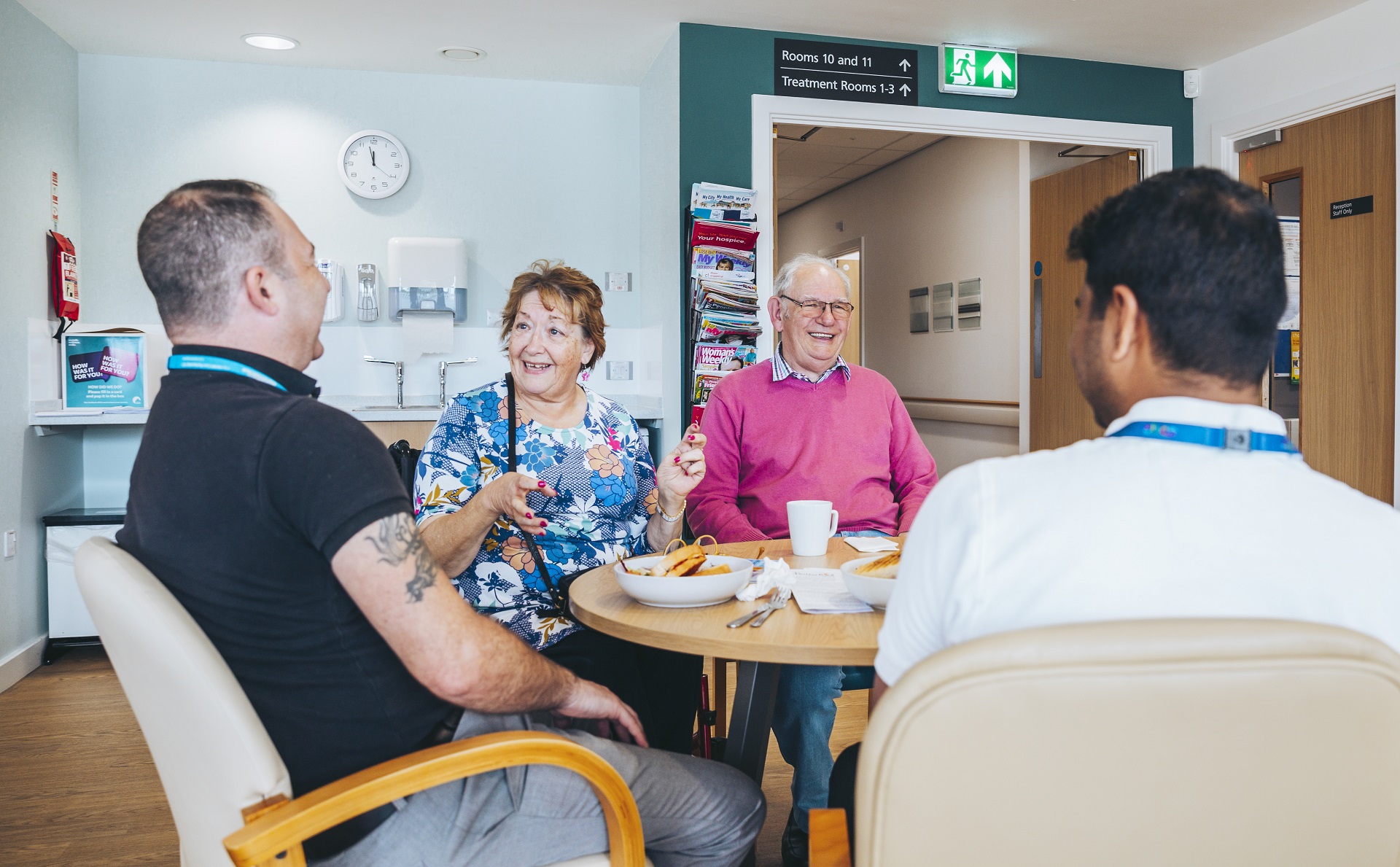Thought leadership
Changing the conversation on disability – Diversity and Ability

Diversity and Ability is a pioneering social enterprise led by and for disabled people. It supports individuals and organisations to create inclusive cultures where diversity is celebrated and people can thrive. Based in Brighton, 85% of its team identify as neurodiverse and/or disabled.
The social enterprise provides one-to-one support to people through the education system, runs training and workshops for workplaces and institutions and also runs an international programme which spreads its message of inclusivity and educates people on the practical means through which they can better understand and welcome disabled people.
They work to redefine how society views disability, actively working to break down barriers that limit the opportunities and freedoms of disabled people to flourish through centering the importance of lived experience
Reframing the discussion
Two core modes of thinking run across the social enterprise’s work which inform all of its programmes – the idea of disablement and that of intersectionality. Far from being academic buzzwords these principles are used to both empower marginalised groups and shift attitudes amongst the wider population.
The concept of disablement originates in the social model of disability and the disabling situations in which people are placed. Framing things this way shifts the emphasis away from how an individual can change to fit in, to addressing the social barriers which result in people being excluded. In the words of Chief Executive Atif Choudhury, Diversity and Ability’s model looks at “what is a disabling situation and how do we change it”.
The second principle of intersectionality recognises the importance and diversity of lived experience respecting how different people live different lives. An understanding of how race, gender, class, sexuality and other aspects of identity interact with each other and with the social concept of ‘disability’ is core to their work allowing the social enterprise to better tailor support and create system wide change. Using the examples of epilepsy, muscular dystrophy or cerebral palsy, Atif highlighted that how individuals experience these conditions is heavily influenced by socio-economic status, their support networks, sense of shame and trauma. Having an intersectional lens allows you to look beyond medical diagnoses to look at how society creates situations of disablement.
“Intersectionality is just about basic respect – respecting the idea that people have different experiences to share and that they have been categorised again and again for the convenience of others”
What does this look like in practice?
Diversity and Ability is underpinned by the desire to “pave the way for a future where everyone is welcomed and included” and all their work, be that with individuals or with organisations is undertaken with this in mind.
The social enterprise runs one-to-one support sessions for young people facing disablement providing individualised peer support through further education, higher education and on into the workplace. These are delivered by trainers with shared lived experience of disablement themselves. Individuals are provided with assistive technology training, mental health mentoring, study skills tutoring and also workplace strategy support and coaching. Assistive technology is tech that can help remove a barrier that is presented to an individual, allowing people to fully participate. This can include things like screen readers, screen masks or software to speak into which writes copy. It can also in a wider context refer to items such as glasses or even apps like Google Maps which addresses barriers of access.
Diversity and Ability partner with businesses and universities on their Diversity and Inclusion agendas, centering once again the lived experiences of disablement and intersectionality. This work is not just limited to the UK and the business works with grassroots organisations around the world to transform perceptions around disablement and create environments where difference is celebrated. They work to put in place disability needs assessments that are enabling for an individual and which take advantage of free open-source technology. The work with organisations is similar to that with individuals – focused on shifting the language used and how environments can be changed in order to create “an anticipatory welcome for everyone.”
Work with students is funded by the Disabled Students Allowance and Access to Work schemes as well as earned income through organisational training programmes and the social enterprise’s international work.
“if it’s not intersectional, how can it be relevant”
The lens of disablement and intersectionality is applied throughout these three workstreams of individual support, organisational training and international work. Diversity and Ability deliberately challenge the habit of corporate diversity and inclusion work to break off conversations into silos of race, gender, sexuality and disability recognising that dividing lived experience into silos takes away from the full experiences of individuals. As senior communications officer Ellie Thompson puts it “that’s not how disablement is experienced, that’s not how life is experienced”. In this way when a workshop is run on understanding disability and celebrating neurodiversity an understanding is established that these are not universal experiences with each disabled or neurodiverse persons experience being set within their other lived experiences.
Shifting the narrative
Diversity and Ability is helping reframe the entire discussion on disability, shifting the narrative to one focused on the societal challenges which place people within a situation of disablement. Their commitment to this and to intersectionality has led them to not just work within the education systems and in EDI training but to partner with organisations such as Crisis, St Mungo’s and Homeless Link to tackle homelessness and digital exclusion through building digital literacy skills. Over the pandemic they worked with local and national charities to provide internet access to those in emergency accommodation in the Brighton area, providing 100 tablets and Wi-Fi dongles as well as delivering personalised digital skills training workshops to digitally excluded people throughout the country.
Research carried out by UnLtd and the New Economics Foundation has proven the incredible impact the social enterprise is creating showing that for every £1 spent on Diversity and Ability’s services a return of £16.55 of social value is created. When expanded to look across their higher education work this translates to £9.48 million of social cost-benefit a year.
Diversity and Ability’s work is helping broaden the conversation on what disablement means and the harm done when society prevents the meaningful participation of so many people. As Atif puts it
“D&A isn’t really about assistive technology or disabilities, it’s about participation and what does it take to meet that participation. What are the barriers involved in preventing meaningful participation and what do we lose as a whole civil society when we lose that meaningful participation”
With only around 53% of disabled people in work compared to 81% of other people[1], the work done by Diversity and Ability also raises an important challenge for the social enterprise community – how can we do more to address barriers to participation and inclusion so difference is celebrated and lived experience is at the centre of our work? As businesses committed to social justice and reducing inequalities it is important that we challenge an economy and society which creates disabling situations in order to strive towards the fairer future we are working towards.
Based on an interview with Atif Choudhury and Ellie Thompson at Diversity and Ability


